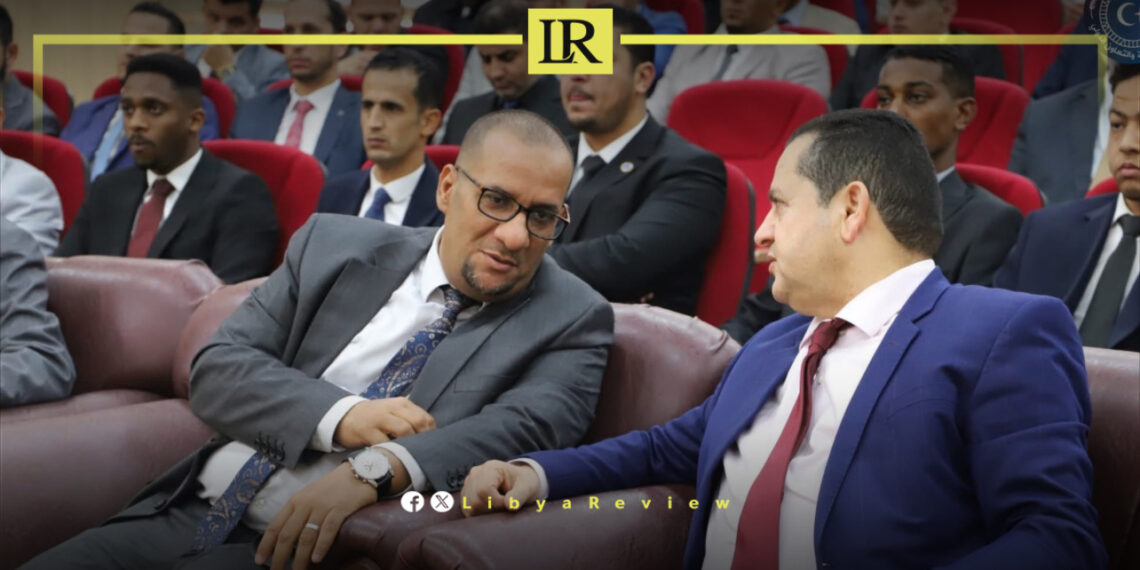A high-level meeting was held on Thursday at the Diplomatic Studies Institute, bringing together senior Tunisian and Libyan political figures to boost bilateral cooperation and deepen ties between the neighbouring nations.
The event, hosted by Libya’s Ministry of Foreign Affairs and International Cooperation, welcomed Zouhair Maghzaoui, Secretary-General of Tunisia’s People’s Movement Party, along with Tunisian MPs Taher Ben Mansour and Mohamed Ben Al-Azhar. The delegation was invited by Libya’s Minister of Foreign Affairs and International Cooperation, Dr Abdul-Hadi Al-Hwaij.
According to a statement by the Libyan government, the session was also attended by Dr Marei Bani, Director-General of the Diplomatic Studies Institute, as well as several institute staff members, new diplomatic attachés, students, and senior officials from the ministry’s departments and offices.
The interactive meeting explored the historical depth of Libyan-Tunisian relations and spotlighted Tunisia’s political experience. Discussions focused on fostering closer cooperation and enhancing shared efforts that benefit the people of both countries.
This diplomatic engagement comes amid ongoing regional efforts to promote political dialogue, cross-border collaboration, and long-term stability in North Africa.
Libya has been in chaos since a NATO-backed uprising toppled longtime leader Muammar Gaddafi in 2011. The county has for years been split between rival administrations.
Libya’s economy, heavily reliant on oil, has suffered due to the ongoing conflict. The instability has led to fluctuations in oil production and prices, impacting the global oil market and Libya’s economy.
The conflict has led to a significant humanitarian crisis in Libya, with thousands of people killed, and many more displaced. Migrants and refugees using Libya as a transit point to Europe have also faced dire conditions.
The planned elections for December 2021 were delayed due to disagreements over election laws and the eligibility of certain candidates. This delay has raised concerns about the feasibility of a peaceful political transition.
Despite the ceasefire, security remains a significant concern with sporadic fighting and the presence of mercenaries and foreign fighters. The unification of the military and the removal of foreign forces are crucial challenges.


